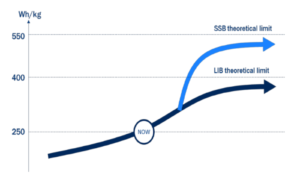Solid State Battery
A solid state battery has electrodes made of solid material and uses a solid electrolyte. Its liquid counterpart, the lithium ion battery, uses a liquid electrolyte. A lithium polymer battery uses a polymer gel electrolyte. The two types are not the same and are used in different situations. Here are some facts about each type and their pros and cons. These facts will help you choose the right type for your needs.
First, solid state batteries don’t contain a liquid electrolyte. Liquid batteries are flammable and require expensive cooling and warming systems. They also have a graphite anode that is prone to side reactions that reduce its performance over time. In addition, during charging, lithium metal spikes can form on the anode and pierce the permeable separator. These dendrites can short-circuit the cell.
In terms of safety, lithium-ion batteries are the best choice for everyday use. These lightweight batteries are highly durable and are ideal for portable devices. However, they have a few disadvantages, such as being heavy and unstable in extreme temperatures. The danger of a fire or explosion is also a major concern. For this reason, most lithium-ion batteries are not flammable. If you need a battery with a long life, consider a solid state battery.
Manganese Market Analysis by Martin Kepman CEO of Manganese X Energy Corp
In contrast, a liquid li-ion battery has a volatile electrolyte that can leak or catch fire. The solid state battery has a higher level of stability, which means that it can store more energy. This is important for a battery, especially if you use it for extended periods of time. This technology could also help EV drivers switch over to electric vehicles, as drivers would not have to stop frequently to recharge it.

What is a Solid State Battery?
Compared to a liquid li-ion battery, a solid state battery has a more stable structure. This increases safety and capacity. While a liquid li-ion is more volatile, solid state batteries have a higher stability. EVs need a similar mileage as a gasoline-powered car. Therefore, a liquid-ion battery should be able to last for a long time.
While the two types of batteries are similar, the solid state battery features a solid electrolyte. The liquid electrolyte is less volatile. A solid-state battery will have higher energy density, a longer range, and a faster recharge. The solid-state battery is heavier than its liquid-ion counterpart. Despite the fact that the latter is lighter and more reliable, the solid-state version will likely never catch fire.
A solid-state battery can have an electrolyte made of carbon, lithium, or another element. Unlike liquid electrolyte batteries, solid-state batteries will have a high capacity and high energy density. They also have a higher price tag than liquid-ion batteries. The cost of a solid-state battery will be lower than a liquid-ion battery. This means that the solid-state battery will be lighter and smaller, but still have the same performance as its liquid-ion counterpart.